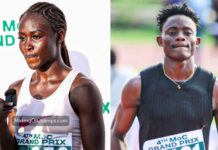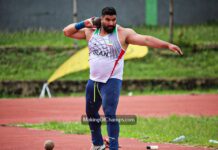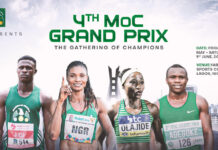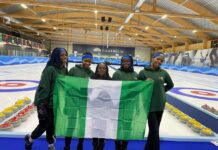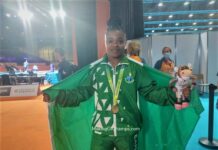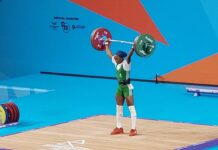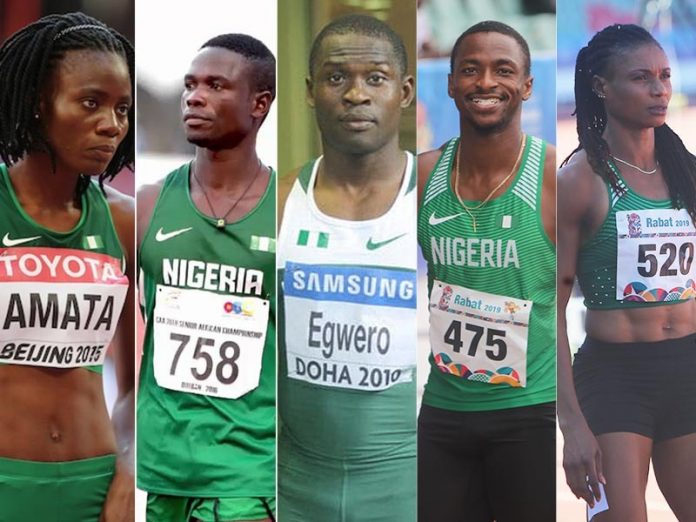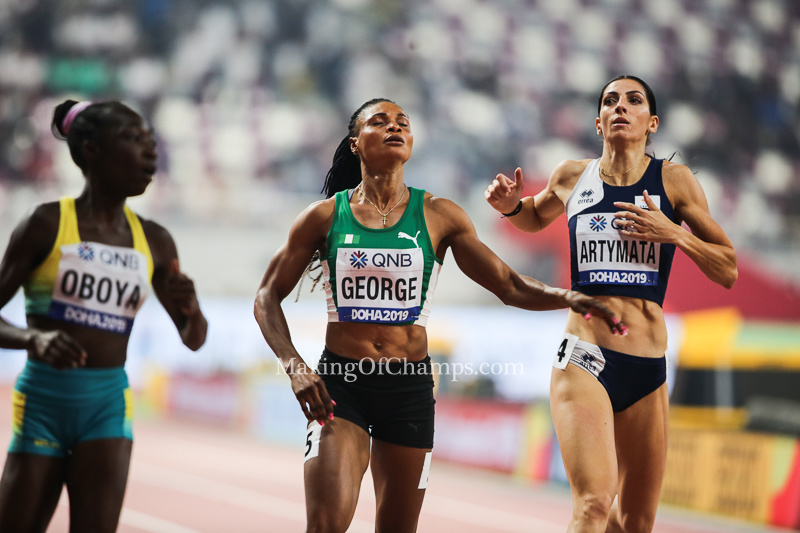Seven Nigerian athletes have qualified for the forthcoming Tokyo Olympic Games, and four of those athletes will be making a return trip to the Games. Here is a list of five other athletes who have competed at the Olympics previously, and will be hoping to meet the entry standards for Tokyo and make a return to what is the biggest sporting event in 2021!
5. DOREEN AMATA
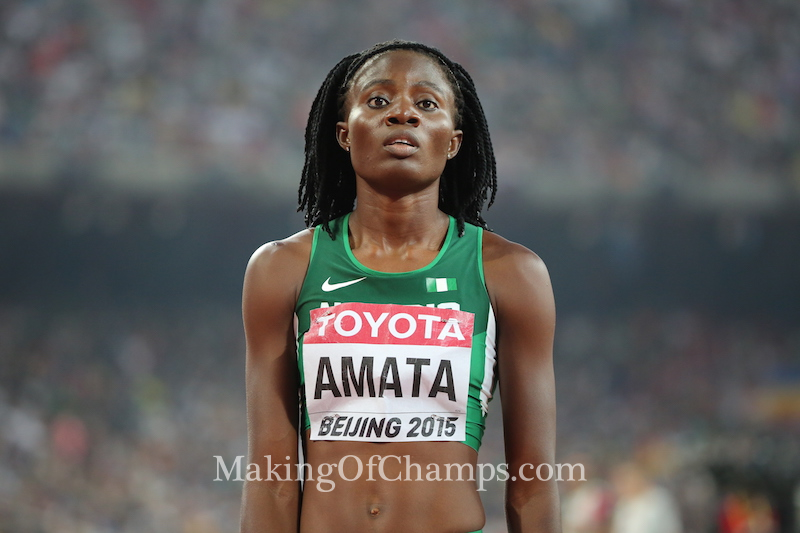
Since Doreen Amata set the existing Nigerian Record in the women’s High Jump at the National Athletics Championships with a 1.95m clearance to qualify for her first Olympic Games in 2008, she has remained the highest ranked Nigerian female High Jumper on World Athletics, even going on to equal her own NR mark three more times: twice in 2011 and once more in 2016, securing her a berth to her third Olympic Games in Rio.
It was also in 2016 that she set the indoor NR with a 1.93m clearance to win in Banska Bystrika and equalled it at the Hustopece High Jump Meeting.
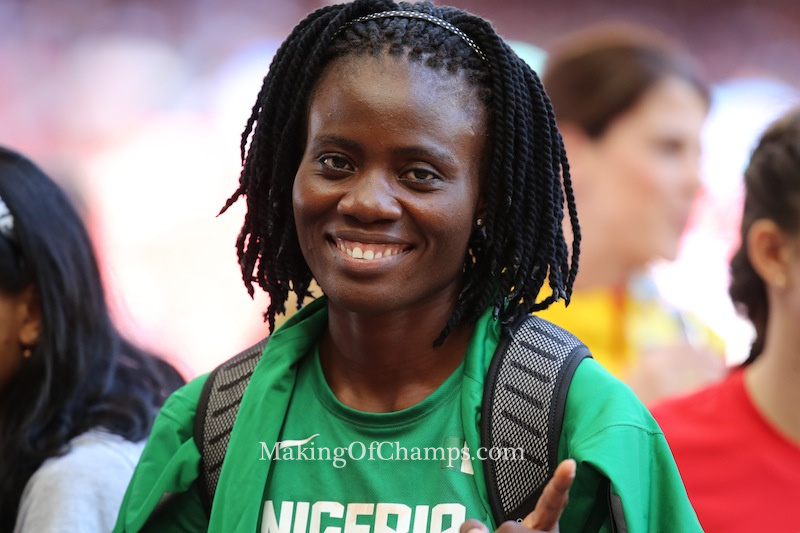
Competing at the 2018 Commonwealth Games, she made the final of her event, and in 2019, won all of her major competition on the circuit, even going to record her highest mark in three years with 1.91m for the win at the 14th AAAG Sports Festival in Decatur with 1.91m.
Amata finished 5th at the African Games in Rabat to close the season and with the stakes so high in the women’s High Jump, will have her eyes set on the qualification standard of 1.96m, a cm better than the NR mark or qualifying through her position on the World Athletics rankings.
4. ORUKPE ERAYOKAN
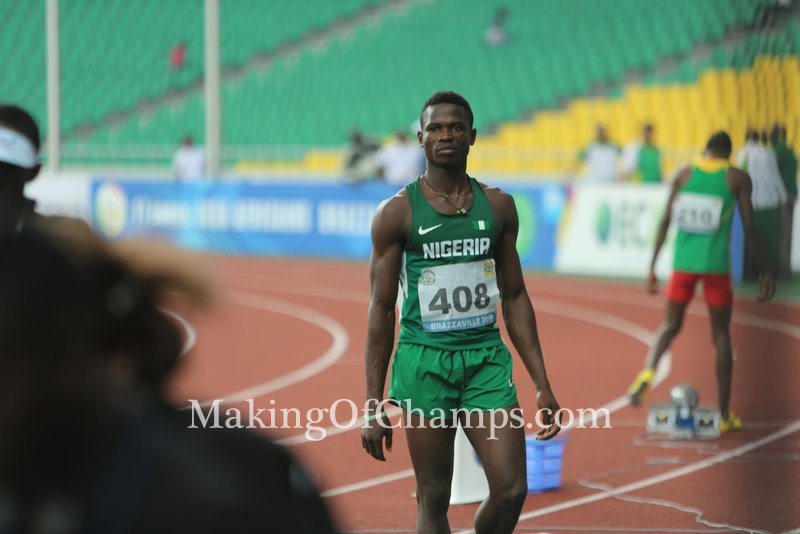
Orukpe Erayokan isn’t a stranger to the highest level of sprinting in Nigerian Athletics, having reached a brilliant level of consistency over years to become one of the country’s most established quartermilers.
Within the previous Olympic cycle (2012-2016), he was infact the fastest Nigerian man over the 400m, with his Personal Best (PB) of 44.95s done in the semifinal of the men’s 400m at the Congo Brazzaville 2015 All African Games. He went on to make his Olympic Games bow in Rio 2016, running in the heats of the men’s 400m.
In 2018, Erayokan finished 2nd in the men’s 400m at the Abuja Commonwealth Trials, securing a berth to compete at the Gold Coast Commonwealth Games where he placed 4th in his heat and narrowly missed out on a spot in the semifinals.
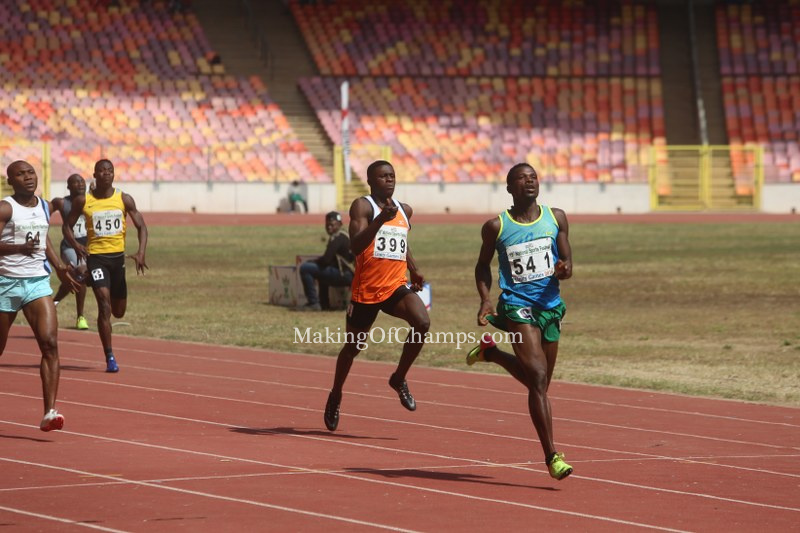
Later that year, he would defeat a stacked field in the men’s 400m at the National Sports Festival (NSF) in Abuja, laying claim to GOLD in a time of 46.32s, thus retaining the title he won at the 2012 NSF in Lagos.
He finished 2nd to Emmanuel Ojeli in the men’s 400m at the 2019 Nigerian Athletics Championships in Kaduna and also donned the country’s colours at his second African Games, this time in Rabat, over 400m and the 4x400m where he won a Bronze medal, helping the Nigerian team to the finish in 3:03.42.
Erayokan only competed once in 2020 at the Test the Track Competition in Benin, winning his event in 46.42s and has since regrouped, having commenced training in Europe towards the 2021 outdoor season. His PB from 2015 remains the fastest run by a Nigerian man since 2015!
3. SEYE OGUNLEWE
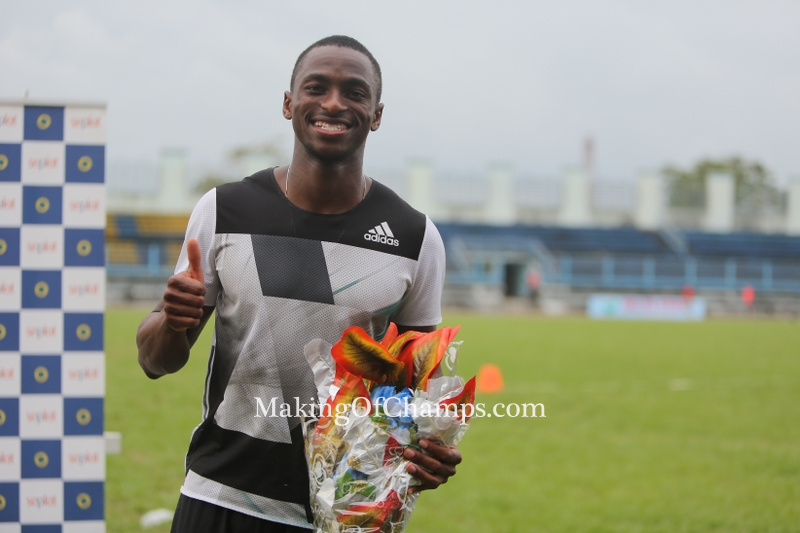
There is no doubt as to the resurgence that the men’s 100m sprint has experienced within the last two outdoor seasons, seeing as three Nigerian men have already qualified for the individual sprint at the Tokyo 2021 Olympics, and some are just about a tenth of a second shy of the qualification standard.
Seye Ogunlewe made his debut at the Olympics in Rio by virtue of winning his second National title at the 2016 National Championships in Calabar, clocking a PB of 10.12s to hit the qualification standard, and is currently just seven hundredths of a second shy of qualifying for the second in Tokyo.
In further demonstration of his brilliance, he won the men’s 100m at the National Championships in 2017 for the third consecutive time and then was selected to compete at the 2018 Commonwealth Games in Gold Coast, Australia, where he made the final, and was narrowly beaten to the Bronze medal by Jamaica’s Yohan Blake, with both sprinters returning 10.19s.

He won every other meet he competed in for the year and in 2019, made huge strides, kicking off the outdoor season with a PB of 10.11s at the Pfingsportfest in Germany behind his compatriot Usheoritse Itsekiri.
He clocked a time of 10.05s at the Resisprint International meet, a time that would subsequently have qualified him for the Olympics, but for the wind reading that was over the allowed limit.
Later that season, for the first time in the span of five years, Seye Ogunlewe wasn’t the winner of the men’s 100m at the National Championships, placing 3rd in a high quality final won by Itsekiri. He ran in the men’s 100m at the African Games, making it into the semifinals and also helped the men’s 4x100m team into the final of the event at the Games.
Ogunlewe has to equal or better the qualification standard of 10.05s for a shot at competing in the men’s 100m at the Olympics.
2. OGHO-OGHENE EGWERO
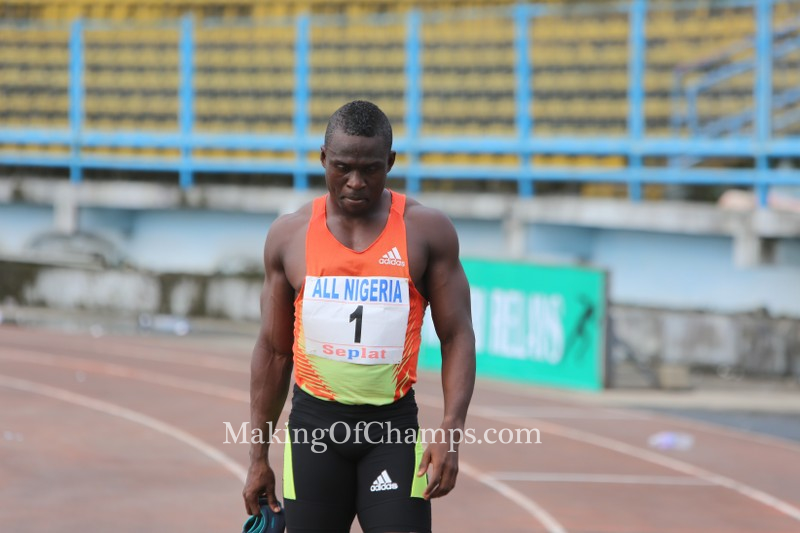
Ogho-Oghene Egwero has no doubt been one of the most consistent figures in the men’s sprints in Nigeria over the last decade, since winning the sprint double at the 2009 National Sports Festival in Kaduna!
With a PB of 10.06s, a time he has run thrice, he’s been to the Olympic Games twice – London 2012 and Rio 2016, and will be looking to return to the Games for a third time in Tokyo.
Since his last Olympic appearance, Egwero has competed for the country at the Gold Coast Commonwealth Games, finishing as a semifinalist. He performed brilliantly at a few meets in Europe and closed the season with a time of 10.32s to finish 2nd at the 2018 National Sports Festival (NSF) in Abuja.
In 2019, he competed in Europe throughout the season, finishing Top 3 in seven of his 10 final 100m races. He then put out stellar performances over the 200m, coming 0.04s short of his PB with a 20.64s run in Germany.
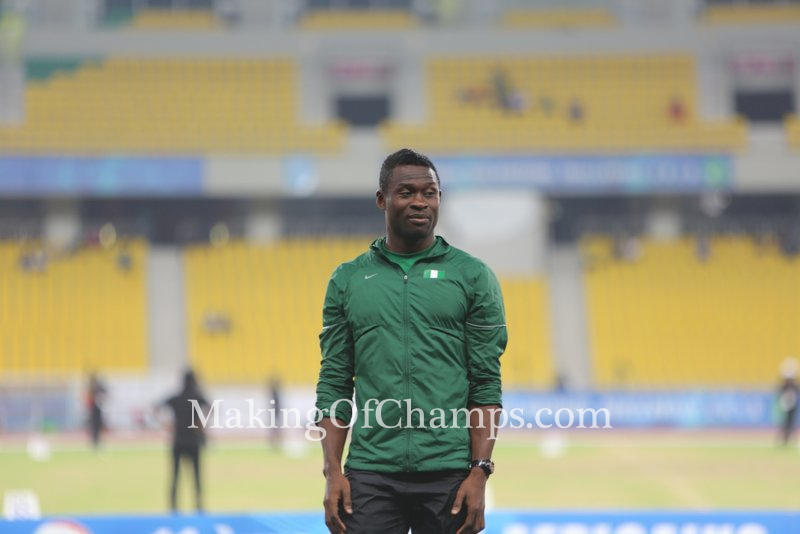
Egwero represented the country at the World Relays in Yokohama and was a member of the 4x200m team that set a National Record (NR) of 1:22.08. He also competed at the African Games in Rabat over the 200m, making the final and finishing 6th. He helped the men’s 4x100m team make the final of their race, with the squad eventually settling for Silver behind Ghana.
He would need to better his 100m PB for a chance to compete in the event at the Olympics, or improve his 200m ranking on World Athletics, where he is currently placed 65th.
1. PATIENCE OKON-GEORGE
Since Patience Okon-George’s breakthrough in 2015, there’s been no looking back as she has consistently risen to become Nigeria’s biggest and most experienced female quartermiler.
Already one of the top 400m runners in Nigeria in 2015, at the La Chaux-de-Fonds Resisprint International Meet in Switzerland, she swept to a massive PB of 50.76s to take the women’s 400m and went on to win her first national title in Calabar in the same month, qualifying her for the World Championships in Beijing.
For the second time in her career, she broke 51s in the heats of the women’s 400m in Beijing, running 50.87s to finish 3rd and then went even better, equalling her PB of 50.76s in the semifinals where she finished 4th, just missing out in the final as her time was the 9th fastest across all of the three races.
She set a new PB of 50.71s to take the Silver medal at the 2015 African Games in Congo, and then settled for Bronze at the African Championships in Durban the following year. In Rio, she finished 2nd in her heat with a time of 51.83s and bowed out in the semifinal of the event.
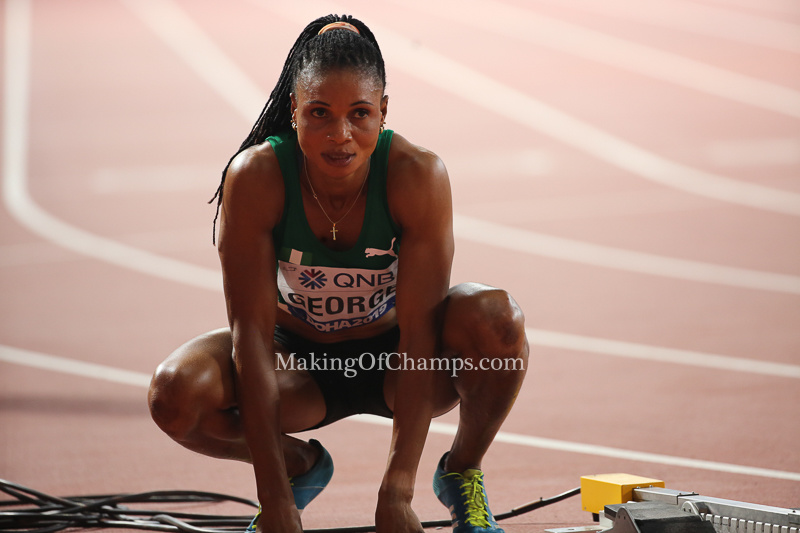
She extended her winning streak of national titles in 2018, running her fastest time of the season in Abuja with 51.06s and then again, made it to the semifinal of the individual event at the World Championships in London, topping it off by making the final of the 4x400m.
At the 2018 Commonwealth Games in Gold Coast, she copped a Silver medal as a member of the 4x400m team and won an individual Silver in the women’s 400m at the African Championships in Asaba behind Caster Semenya.
Okon-George who has represented the country at every major championships since her breakthrough, won her fourth consecutive national title in 2019 with a time of 51.66s. She made the final of the event at the African Games, and led the team to GOLD in the 4x400m, drawing the curtains on that season by making the semifinal of the women’s 400m at the Doha World Championships.
Though her 2020 season, like every other athlete’s was hampered by the COVID-19 pandemic, she managed a 51.84s clocking in her only race of the year in March and is currently the highest ranked Nigerian woman over 400m on the World Athletics ranking, currently at 37.
